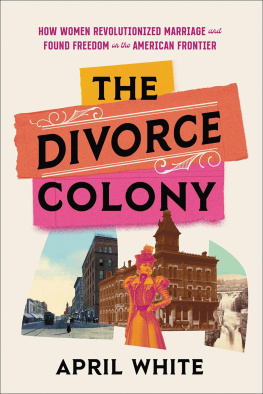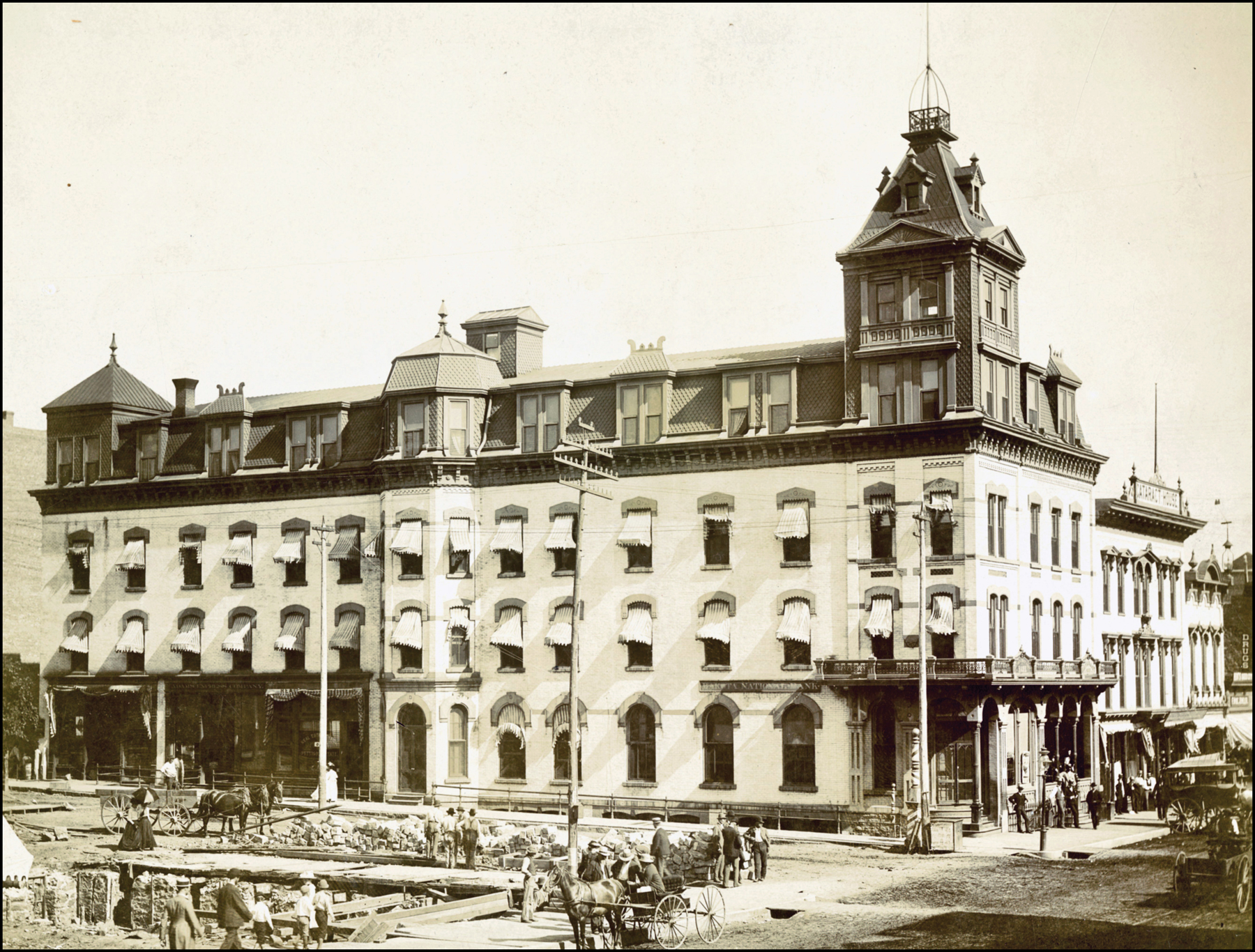April White - The Divorce Colony: How Women Revolutionized Marriage and Found Freedom on the American Frontier
Here you can read online April White - The Divorce Colony: How Women Revolutionized Marriage and Found Freedom on the American Frontier full text of the book (entire story) in english for free. Download pdf and epub, get meaning, cover and reviews about this ebook. year: 2022, publisher: Hachette Books, genre: Non-fiction. Description of the work, (preface) as well as reviews are available. Best literature library LitArk.com created for fans of good reading and offers a wide selection of genres:
Romance novel
Science fiction
Adventure
Detective
Science
History
Home and family
Prose
Art
Politics
Computer
Non-fiction
Religion
Business
Children
Humor
Choose a favorite category and find really read worthwhile books. Enjoy immersion in the world of imagination, feel the emotions of the characters or learn something new for yourself, make an fascinating discovery.
- Book:The Divorce Colony: How Women Revolutionized Marriage and Found Freedom on the American Frontier
- Author:
- Publisher:Hachette Books
- Genre:
- Year:2022
- Rating:4 / 5
- Favourites:Add to favourites
- Your mark:
The Divorce Colony: How Women Revolutionized Marriage and Found Freedom on the American Frontier: summary, description and annotation
We offer to read an annotation, description, summary or preface (depends on what the author of the book "The Divorce Colony: How Women Revolutionized Marriage and Found Freedom on the American Frontier" wrote himself). If you haven't found the necessary information about the book — write in the comments, we will try to find it.
**AN APPLE BEST BOOK OF THE MONTH (June 2022)**
From a historian and senior editor at Atlas Obscura, a fascinating account of the daring nineteenth-century women who moved to South Dakota to divorce their husbands and start living on their own terms
For a woman traveling without her husband in the late nineteenth century, there was only one reason to take the train all the way to Sioux Falls, South Dakota, one sure to garner disapproval from fellow passengers. On the American frontier, the new state offered a tempting freedom often difficult to obtain elsewhere: divorce.
With the laxest divorce laws in the country, five railroad lines, and the finest hotel for hundreds of miles, the small city became the unexpected headquarters for unhappy spousesinfamous around the world as The Divorce Colony. These society divorcees put Sioux Falls at the center of a heated national debate over the future of American marriage. As clashes mounted in the countrys gossip columns, church halls, courtrooms and even the White House, the women caught in the crosshairs in Sioux Falls geared up for a fight they didnt go looking for, a fight that was the only path to their freedom.
In The Divorce Colony, writer and historian April White unveils the incredible social, political, and personal dramas that unfolded in Sioux Falls and reverberated around the country through the stories of four very different women: Maggie De Stuers, a descendent of the influential New York Astors whose divorce captivated the world; Mary Nevins Blaine, a daughter-in-law to a presidential hopeful with a vendetta against her meddling mother-in-law; Blanche Molineux, an aspiring actress escaping a husband she believed to be a murderer; and Flora Bigelow Dodge, a vivacious woman determined, against all odds, to obtain a dignified divorce.
Entertaining, enlightening, and utterly feminist, The Divorce Colony is a rich, deeply researched tapestry of social history and human drama that reads like a novel. Amidst salacious newspaper headlines, juicy court documents, and high-profile cameos from the eras most well-known players, this story lays bare the journey of the turn-of-the-century socialites who took their lives into their own hands and reshaped the countrys attitudes about marriage and divorce.
April White: author's other books
Who wrote The Divorce Colony: How Women Revolutionized Marriage and Found Freedom on the American Frontier? Find out the surname, the name of the author of the book and a list of all author's works by series.










